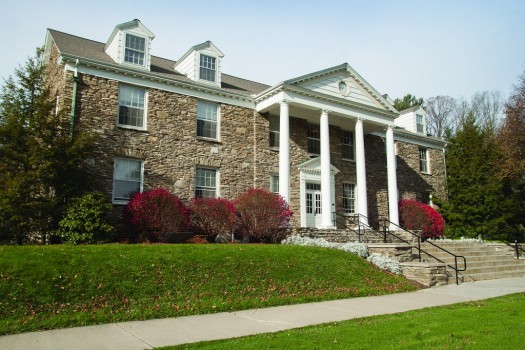For those of us enveloped in the familiar “Houghton bubble,” the thought of life after college can easily get crushed under more immediate obligations: Assignments, exams, delicious oven-baked cookies in the dining hall.
Inevitably, the reality of life after Houghton must be acknowledged. As graduation rapidly approaches, many students contemplate leaving as they move on to the next step of furthering their education: graduate school.
Senior Ben Murphy is one such student, going to the University of North Carolina Chapel Hill for a PhD in English. His ultimate goal is to become an English professor, though while at school he hopes to focus on 20th century to contemporary American literature. “I want to study post-humanism. It has to do with science studies: how science and technology may change what it means to be human.” When asked about the application process, Murphy commented, “It’s not terribly expensive, but the GRE (Graduate Record Exam) is necessary and that’s like 200 bucks…I spent a lot of time researching graduate programs…to get into the programs, you have to be really specific about the professors you want to work with in your personal statement.”
Outside of the English department, junior Rebekah Kimble is currently applying to schools in order to earn her PhD in history. For Kimble, this process has been extended and strenuous as Kimble admitted “Right now the history job market is terrible. It’s completely flooded with people who have graduated and have a PhD. Most of the programs I want to get in are only accepting 6-10 students into their entire history program. There are around 400 applicants per program, so I’m actually applying to 18 schools.”
However, this abysmally low acceptance rate has not deterred Kimble in the least. “I really love the subject, and I see it as an opportunity to be a Christian in a secular university… to be a witness without evangelizing per se, being an example without hitting people over the head with religion. Also, I just love researching. Going to graduate school enables me to research what I love and publish books.” Despite the current job market, Kimble has decided to pursue her passions.
Senior Abigail Bruxvoort will attend Northwestern University to procure her PhD in philosophy. Applying to a total of 11 schools, Bruxvoort described her application process: “I took the GRE last May, and I did some basic research on schools over the summer and created a list of schools to apply to. Then, in October and November I started preparing my writing sample, writing a statement of intent, and asking for letters of recommendation…The main difficulty with applying and visiting schools has been being a full time student in the midst of it all.”
When asked about her decision to go to graduate school, Bruxvoort replied, “Why am I going? Because I would happily spend the rest of my life in philosophy classrooms.”
While a PhD program may be what first comes to mind when it comes to talking about graduate school, some Houghton students have their eyes on different goals. Senior Jim Vitale anticipates working toward his Master of Divinity at Luther Seminary in St. Paul, MN. When asked about his future plans, Vitale responded, “I have been pursuing an interest in ministry on and off for almost eight years now, and my love for theology has only grown in my time at Houghton. I hope to use this degree to be ordained a Lutheran pastor and serve a church somewhere.”
Senior Caleb Johnson plans to attend George Mason University to further his studies in International Relations. “I’m an IR major and I love it. I want to join the Foreign Service. Graduate school will present me with opportunities and internships, and give me the experience I need to pass the Foreign Service test.”
From the science department, senior Esther Schow intends to enter Auburn University to pursue a degree in veterinary medicine. Speaking about her passion for becoming a veterinarian, Schow commented, “I love caring in a tangible way that conjoins the academic side of science, with the emotional side of animal husbandry… since high school, I have known that I wanted to either become a doctor or veterinarian, so graduate school has always been something I assumed I would do.”
Applying for graduate school can be an arduous process which requires planning, research, time, and a moderate amount of cash, but for those with the desire, the opportunity to further their education and grab their goals is entirely worth the effort.


